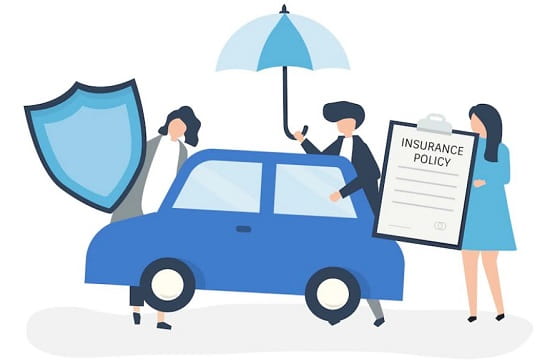Last updated Jun. 20, 2024 by Peter Jakes
In today’s rapidly evolving financial landscape, possessing robust financial literacy skills is more important than ever. Whether you are looking to manage your personal finances, invest for the future, or simply understand how money works, having access to the right resources is crucial. With the abundance of information available online, it can be overwhelming to identify which resources offer accurate, relevant, and practical knowledge.
This article highlights the top four resources for financial literacy in 2023, providing learners with invaluable tools to enhance their understanding and command of financial matters. These resources span various formats, including online courses, interactive platforms, books, and podcasts, ensuring there is something for everyone, regardless of their learning preferences.
1. Investopedia
Investopedia is a go-to resource for anyone looking to improve their financial knowledge. Established in 1999, this comprehensive platform offers a vast array of articles, tutorials, dictionary definitions, and financial news.
Features:
- Educational Articles: From basic financial concepts to advanced investing strategies, Investopedia covers a broad range of topics.
- Simulators: The platform offers stock market simulators and other interactive tools to help users practice without risking real money.
- Investopedia Academy: This is a collection of courses on topics such as personal finance, investing, and cryptocurrency.
- Financial News and Analysis: Stay current with the latest trends and updates in the financial world.
Why it Stands Out:
Investopedia’s strength lies in its detailed, user-friendly content that caters to all levels of financial literacy. Whether you’re a complete novice or an experienced investor, Investopedia offers tools and resources that can expand your financial knowledge.
2. Khan Academy
Khan Academy has long been revered as a top educational resource, and its offerings in financial education are no exception. This nonprofit organization provides free, high-quality education to learners worldwide, including comprehensive financial literacy courses.
Features:
- Personal Finance Courses: Covering topics from budgeting and saving to taxes and retirement planning.
- Interactive Exercises: Engage learners with quizzes and practice problems to reinforce concepts.
- Videos and Tutorials: Visually appealing and easy-to-understand video lessons on various financial topics.
- Progress Tracking: Allows users to track their learning journey and measure their progress.
Why it Stands Out:
Khan Academy excels due to its high-quality, free content that is accessible to everyone. The platform’s personal finance section is particularly well-designed, making it an excellent resource for individuals at any stage of their financial education journey.
3. "Rich Dad Poor Dad" by Robert Kiyosaki
Books remain one of the most effective ways to gain in-depth understanding of financial concepts. "Rich Dad Poor Dad" has been a game-changer in the financial literacy realm since its publication in 1997.
Features:
- Conceptual Approach: Provides a unique perspective on wealth-building and financial independence.
- Real-Life Examples: Uses contrasting philosophies of the author’s two "dads" to illustrate financial principles.
- Actionable Advice: Offers practical tips and strategies for managing money and investing.
Why it Stands Out:
The book’s engaging storytelling method makes complex financial concepts relatable and easy to understand. Kiyosaki’s principles on assets, liabilities, and entrepreneurship remain relevant and have inspired millions to take control of their financial destinies.
4. "The Dave Ramsey Show" Podcast
Podcasts are a fantastic way to learn on the go, and "The Dave Ramsey Show" is one of the most popular resources for financial advice and education.
Features:
- Expert Advice: Dave Ramsey offers practical financial advice based on years of experience.
- Listener Questions: The show addresses real-life financial questions from listeners, providing relatable solutions.
- Topics Coverage: Covers a wide range of financial topics, from getting out of debt to investing and retirement planning.
- Motivational Content: Encourages and motivates listeners to take control of their finances and achieve financial peace.
Why it Stands Out:
Dave Ramsey’s approachable style and real-world advice make financial concepts easy to understand and implement. His focus on debt elimination and financial freedom resonates with a wide audience, making it a valuable resource for those looking to improve their financial health.
FAQs
1. Why is financial literacy important?
Financial literacy is crucial because it equips individuals with the knowledge and skills to manage their money effectively. Understanding financial principles can help people make informed decisions, avoid debt, save for the future, and invest wisely.
2. Can financial literacy be self-taught?
Yes, financial literacy can be self-taught using various resources such as books, online courses, podcasts, and articles. The key is to start with basic concepts and gradually move on to more advanced topics.
3. How can I improve my financial literacy?
You can improve your financial literacy by utilizing resources like Investopedia, Khan Academy, books like "Rich Dad Poor Dad," and podcasts like "The Dave Ramsey Show." Practicing what you learn and staying updated with financial news also plays an essential role.
4. Are there any free resources for financial literacy?
Yes, there are numerous free resources for financial literacy, including Khan Academy, many articles on Investopedia, and free podcasts such as "The Dave Ramsey Show." These resources provide high-quality financial education without any cost.
5. Which resource is best for beginners?
For beginners, Khan Academy is an excellent starting point due to its comprehensive, easy-to-follow lessons on personal finance. Investopedia also offers a vast array of beginner-friendly content.
6. How often should I educate myself about financial topics?
It’s a good idea to regularly update your financial knowledge, especially as financial markets and practices evolve. Setting aside time weekly or monthly to read, take a course, or listen to a podcast can be very beneficial.
7. Can financial literacy help me get out of debt?
Absolutely. Financial literacy provides the tools and knowledge necessary to create a budget, manage expenses, and develop a debt repayment plan, which are all crucial steps in getting out of debt.
8. Are financial literacy courses worth it?
Yes, financial literacy courses can be very worthwhile, especially if they are from reputable sources. They provide structured learning and often more detailed insights into financial topics than self-study.
9. Is "Rich Dad Poor Dad" still relevant today?
Yes, "Rich Dad Poor Dad" remains relevant today. Its core principles on financial independence, investing, and understanding money are timeless and continue to resonate with readers around the world.
10. How do I choose the right financial literacy resource?
Choosing the right resource depends on your learning style and financial goals. Consider whether you prefer reading, watching videos, or listening to audio content, and look for resources that align with your interests and educational needs.
In conclusion, enhancing your financial literacy is one of the most valuable investments you can make. With resources like Investopedia, Khan Academy, "Rich Dad Poor Dad," and "The Dave Ramsey Show," anyone can access the tools needed to empower themselves financially. By utilizing these resources, you can gain the confidence and knowledge to navigate the complexities of personal finance and work towards a more secure financial future.







